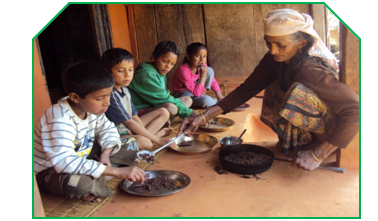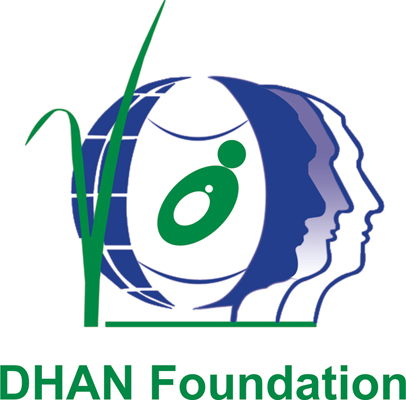Public policy analysis and change aimed at policy environment conducive to small millets
Inadequate policy support for small millets was an overarching issue that contributes to other production, processing, consumption and marketing related problems. To address this the project attempted the following: i) analysing the policy landscape to identify available opportunities for supporting small millets production, research and consumption, ii) taking up policy studies that can feed to the existing/emerging policies and programs, iii) demonstrating the innovative use of existing policies, iv) networking with stakeholders for collective action and v) sharing the policy lessons emerging from the project with the policy makers. A detailed report on these attempts is given in Annex 2.8 and the summary of the various activities is given below.
-
Analysing existing policies
Policy landscaping papers were prepared for India, Nepal and Sri Lanka with a focus on millets. These papers analysed the existing Government policies and programs on millets, to promote production, consumption and research on small millets and compared the same with other food grains. They also indicated the changes and convergence needed in the existing policies and new policies needed for inclusion of small millets in mainstream diets. These documents can be accessed at http://www.dhan.org/smallmillets/policy_papers.php
-
Policy studies
A study on “Exploring feasibility of promoting small millets through PDS” was taken up by a postdoctoral student from CMU & UM, Canada with the support of DHAN & WASSAN.
-
Innovative use of existing policies
-
Pilot project on introduction of millets into ICDS menu:
A pilot project on inclusion of millets in the ICDS in Srikakulum district, India was taken up by WASSAN in collaboration with Department of Women and Children Development. The pilot was showcased and the related policy lessons were widely shared with local stakeholders in the district through a workshop and to a wider audience through policy workshops at Tamil Nadu, Odisha and Delhi.
-
Introduction of small millet recipes in school food programs:
The project partner WASSAN facilitated the introduction of millet based snacks to 4162 students in the government social welfare school hostels in three blocks in Malkangiri District, Odisha, India. LI-BIRD facilitated introduction of finger millet recipes in mid-day meals 1 to 4 times per month in ten government schools catering to 848 students in two districts.
 Introduction of finger millet recipes in School, Nepal
Introduction of finger millet recipes in School, Nepal -
-
Networking with other relevant stakeholders
A national stakeholder consultation meeting was organised in India at Coimbatore, India by DHAN and TNAU for bringing all stakeholders- producers, market chain actors, food industries, machinery fabricators, researchers and development agencies- to a platform and identify ways to collectively address various issues faced by them. DHAN worked closely with the State Planning Commission (SPC) and Department of Agriculture (DOA) in Tamil Nadu, Central Institute of Agricultural Engineering (CIAE), Central Food Technology Research Institute (CFTRI) and Revitalising Rainfed Agriculture (RRA) network.
-
Sharing the policy lessons emerging from the project with the policy makers
Policy consultation meetings were conducted in Tamil Nadu, Odisha, Andhra Pradesh and Delhi in India and in Nepal. Three policy briefs were prepared and widely shared with the policy makers. During these events, policy lessons emerging from different activities of RESMISA project were presented.




